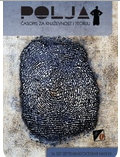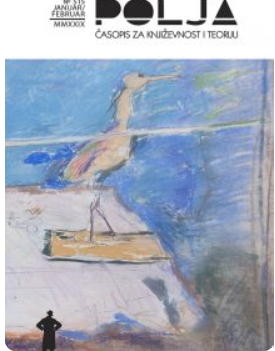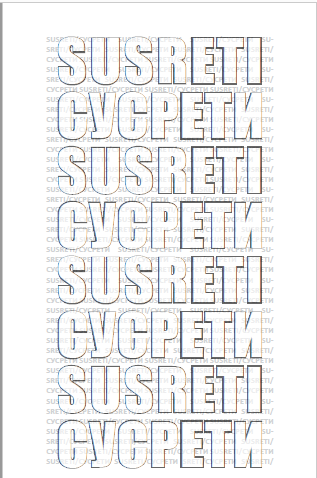
We kindly inform you that, as long as the subject affiliation of our 300.000+ articles is in progress, you might get unsufficient or no results on your third level or second level search. In this case, please broaden your search criteria.


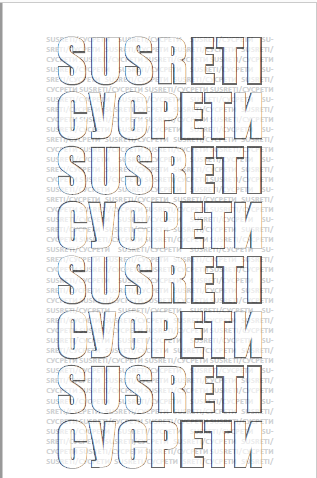
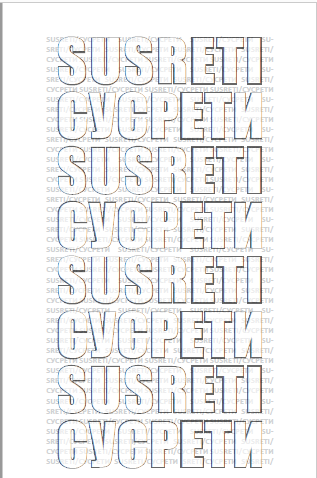
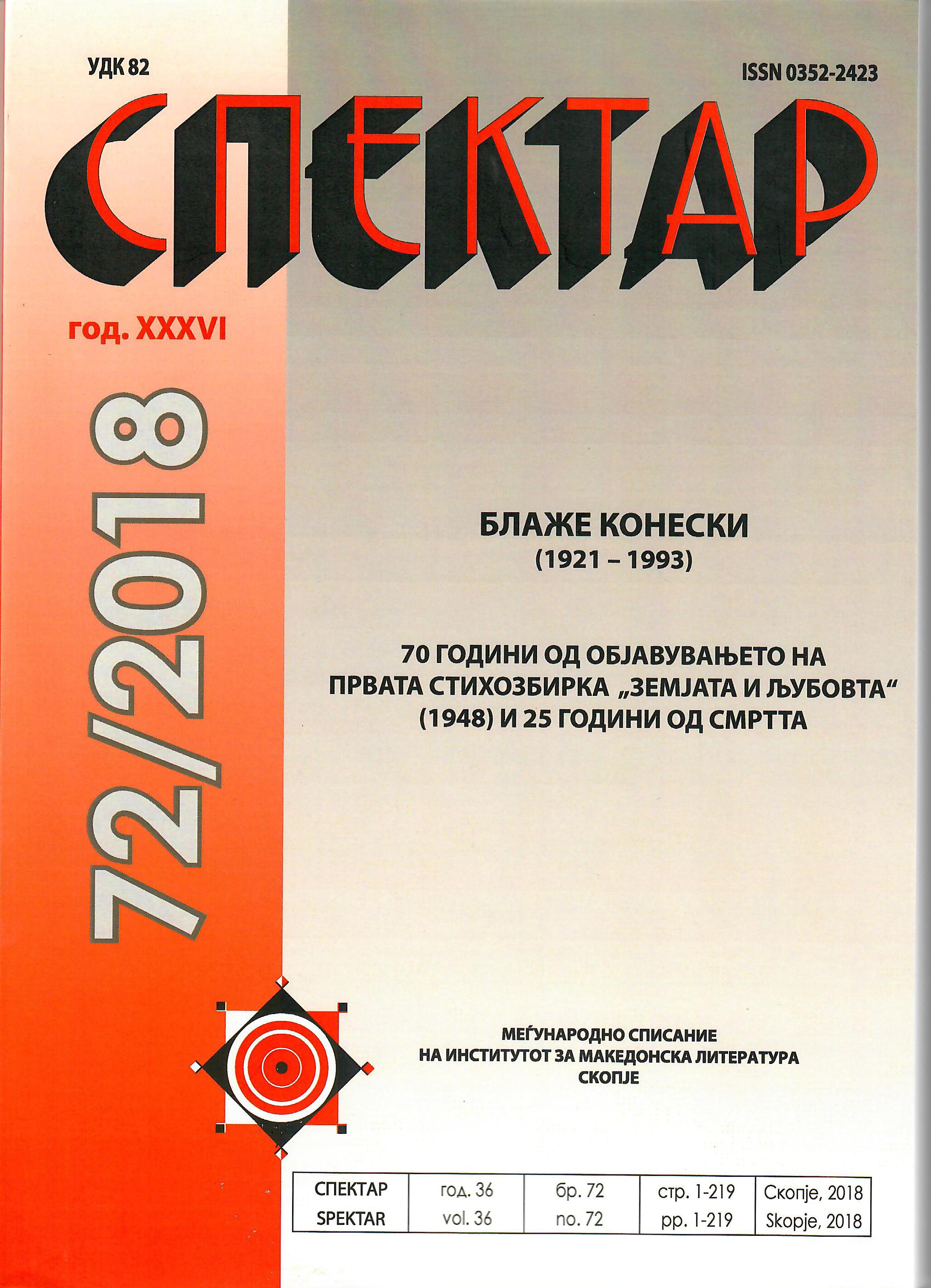
Since the occasion of 70 years since the publication of the poem "The Earth and the Love" by the prominent Macedonian poet and writer Blaze Koneski, in this text we want to emphasize that his poems refer to the awareness and the feeling of the unity of poetry and life. The basis of the poetic message of Koneski is characterized by: depth, lyricism, intimacy, confession, thoughtfulness .We emphasize that Koneski's poetry is close to us, to our concepts of life, they come from our everyday lives and our tradition. In the text we confirm the position that his poetic work is assessed as complex in its details and simple in its entirety by the Macedonian critical science.
More...
The text is a questionnaire prepared for the international scientific project National Poets and Cultural Saints of Europe, held by the Slovenian and Icelandic academies of sciences and arts in 2016. Our answer on this questionnaire is that Blaze Koneski is the Macedonian poet who can be considered as national cultural saint of Europe because of his great opus with strong national feelings interconnected with universal values; also because of his role in the codification of standard Macedonian, and all of his activism as a professor, academy member, Slavic linguist, and historian.
More...
The literary opus of Blaze Koneski are consists from the critical-theoretical part and from the poetic part. In the paper, the emphasis is put on the critical-theoretical part, and the focus is the tradition and the relation/the attitude of Blaze Koneski towards the tradition, which in the paper is not considered as a formalistic-essential/ as a given, i.e. organic whole, but it is considered from a postmodern aspect. This aspect, allows to indicate that "the tradition is not an autonomous, closed, immanent structure, that its closeness is constantly delayed, that it is a creation in infinite change and re-creation, or an open structure, that it is not just a linear transmission from knee to knee, i.e. adding, remembering, storing events, but also forgetting and eliminating them". Therefore, on the methodological plan for clarifying the problem of tradition we did not operate with models, but we followed the postmodern approach, a principle-no-principle known as "integration by the way of the differentiation" (Foucault) or a differane (Derrida). This means that in the analyzes we do not deal exclusively with the description of what is already evident and confirmed in the works of the author, but also with what in his critical-theoretical opus seems seemingly peripheral, and which in fact disputes the essentialization of his thought, ie, it makes problematization of the discourse itself from within. Hence, in this way it can be most effective to show that Blaze Koneski is so far from being called a traditionalist.
More...
In his poetry, Blazhe Koneski seeks for spiritual dimensions in whose apparent peace various poetic ideas are presented - one of which is the idea of loneliness. Loneliness in his poems, in a sense, is the meaning of existence. They spring from the sensitive poetic soul and penetrate the most hidden parts of the human being. In some of his poetic paintings, his primordial desire for calmness and loneliness is noticed and this brings him peace. In other, loneliness is captured with selected word forms, which express loss, separations and abandonments, which gives rise to sadness and melancholy. Furthermore, loneliness is intricate in the Macedonian identity as a predestination. Common to all of the poems is the fact they are immanent of his melancholy and incessant sadness. It is believed that Koneski does not regret, does not mourn, but only describes loneliness.
More...
The study aims to explain the specific mood of melancholy and its representation. In the spirit of the theory of affections, melancholy is a state that is actualizing in connection with the poetry of Blazhe Koneski. The experience of time, especially the relationship between the past and the present, indicates the occurance of change. It is the reason for the mood of melancholy. It is most closely related to the feeling of emptiness or, in the context of the thoughts, to end or death. By interpreting a composition of moods of melancholy that is closely correlated with the variability of things, but also with the unfeasibility of certain desires present in the poems of Blazhe Koneski, we interpret this affective feature and explain it using the methodology of psychoanalysis.
More...
In this paper, the poetical ideas in the first Koneski’s poetry book stand against his philological work in the field of the Macedonian language and literature in the earliest period of his academic career, especially in the year when The Land and Love was published.
More...
The subject of our interest are stylistic values of adverbs in Koneski’s first poetic book The Land and Love| and in his song „Playing with a Child“. Adverbs are significant features in the poetic language of Koneski: the ellipticity of the verse, diversity of the poetic text, and large number of creative processes such as actualization etc.
More...
One of the key elements within the study of Koneski's poetic, but also scientific and theoretical opus is the distinction between his early and mature creative period. Science has left visible traces marking significant phases of his creative evolution, which is the subject of discussion in this paper. Taking this into considertaion, it is understandable that when it comes to the diversity of Koneski’s poetic creativity, it is also necessary to observe his literary-theoretical and linguistic insights that he gives to the scientific community through a number of essays addressing the phenomena such as the type speech automation, the liberation from the symbolic expression, cultural and linguistic continuity in geo-culturally defined environments and semiospheres, the evolution of tradition under the influence of innovation, the migration of archetypal notions to the world - myths, legends, religious-philosophical matrices, i.e., themes which stand for the correlations between his poetry evaluation standards and scientific criteria.
More...
In the past few years, I have devoted myself to a thorough research of the entire work of Blazhe Koneski, which resulted in two of my books. They aroused huge interest in all 16 promotions held, and later, my attention was drawn to the new works dedicated to Blazhe Koneski. Among those, I have given special attention to the poem "Koneski", a piece of poetry created by Jovan Baseski, which appeared in 2015, within a collection of poems titled The White City. This year, there are four of his books of poetry published, in one of which is the already mentioned poem "Koneski" - the subject of my interest in this paper.
More...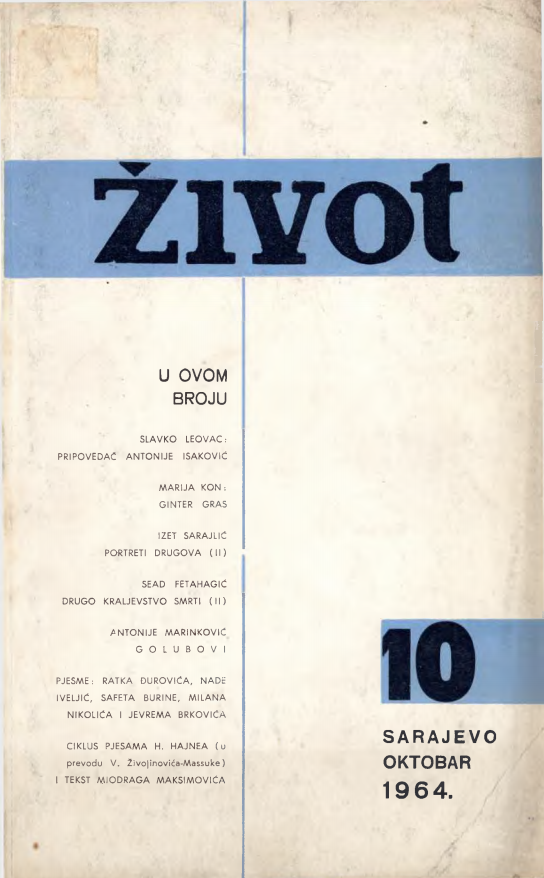
Review of: Milan Đurčinov, "Prisutnosti", Kultura, Skoplje, 1963.; by: Miodrag Drugovac
More...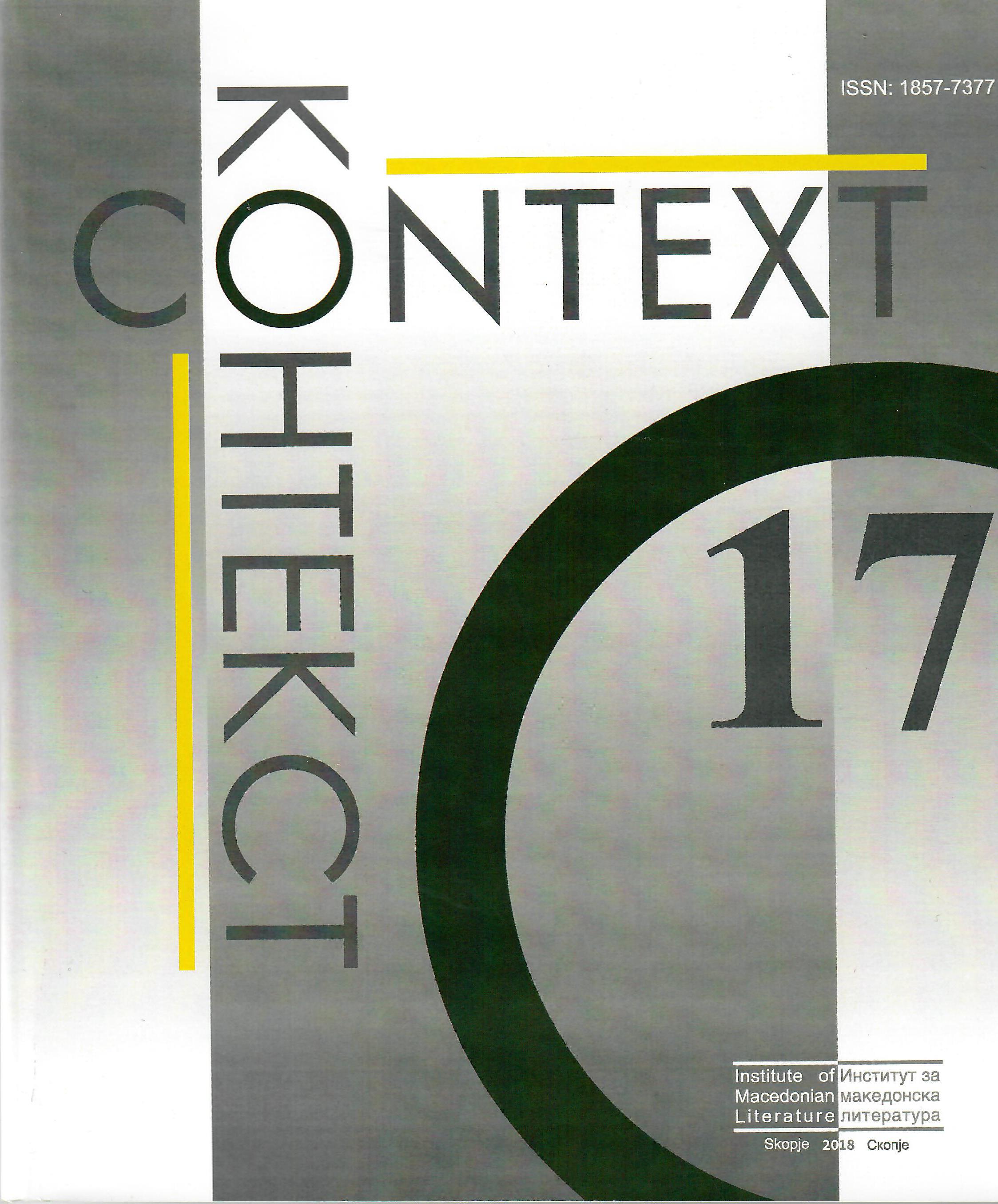
The text is dedicated to the Macedonian distinguished literary scholar, critic and member of Macedonian Acade-my of Sciences and Arts, Milan Gjurcinov, who was founder of the Department of General and Comparative Lit-erature on Faculty of Philology “Blaze Koneski” at Ss. Cyril and Methodius University in Skopje. It summarizes the main methodolocical tendencies among scholars in Macedonia who are professionally devoted to teaching and researching in the field of comparative literature and culture. It also marks the history of the discipline in Macedo-nia and its most prominent representatives.
More...
One of the most commonly used figures in Macedonian literature in the XIX century is that of the mother. Motherhood was used as a motive and topic by numerous writers in their memories, prose and poetry works. The images of the mother is present in Macedonian folklore, as well. Here the mother is presented with all her human qualities: good, bad, she curses, she blesses. On the other hand, in autobiographies and memories, she is elevated to a higher, sometimes even unreal level. We find particularly interesting the female characters in the works of Grigor Prlichev, Rajko Zhinzifov and Marko Cepenkov, which we have dealt with in more detail. As a separate sub-topic, there appears the cycle of songs in which the fatherland Macedonia is represented as a mother. That is why we have paid special attention to it, as to a leading female figure in reality and literature.
More...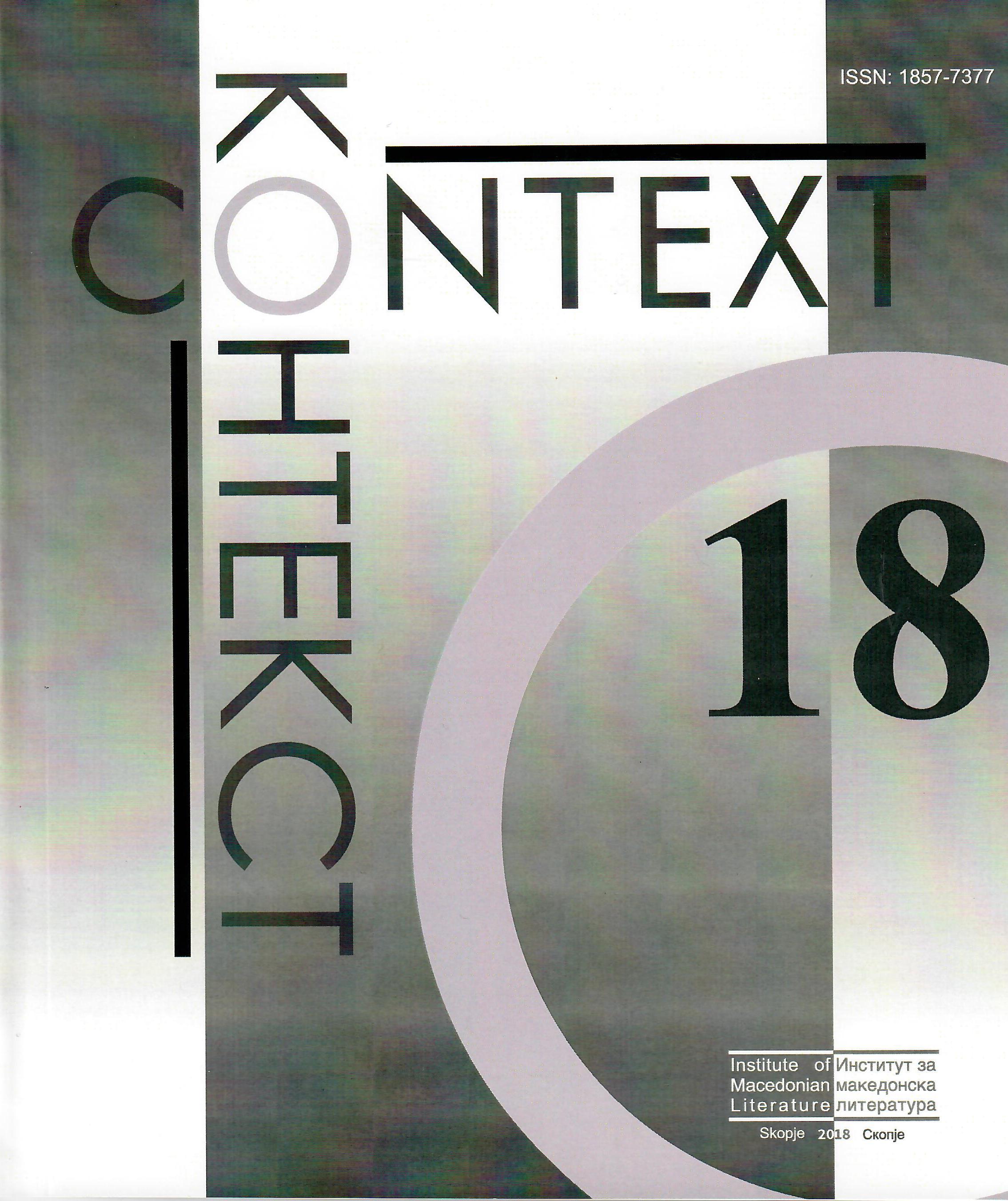
This paper examines the importance of the book Mediterranean Breviary by Predrag Matvejevic (1932-2017) and its reception in Macedonia. Matvejevic is known as one of the most prominent intellectuals from the former Yugoslav space, an antinationalist, scholar and professor at various universities in Zagreb, Paris, Rome, and vice- president of the world PEN association. But he became best known for his geopoetical account of the landscapes and cultures of the Mediterranean area, the Mediterranean Breviary (1987). This seminal book about tolerance and coexistence among different cultures around the Mediterranean Sea has been also translated into the Macedo- nian language, and has had significant impact on Macedonian culture. Matvejevic has not only established Macedonia within the Mediterranean geographical and cultural community, but he has also encouraged many Macedonian scholars to develop several research projects dedicated to this topic. On different occasions he has demon- strated his interest and devotion to the Macedonian country and people. Matvejevic nurtured close relations to many Macedonian intellectuals and institutions. He participated six times at the festival Struga Poetry Evenings, and was maid member of the Macedonian Academy of Science and Arts in 2009. Beside the Macedonian translaion of Mediterranean Breviary (2001), three of his other books were also translated into Macedonian: Poetics of Events (1983) Eastern Correspondence (1995) and Our Bread (2014). All of them have received favourable aclaim among Macedonian literary critics.
More...